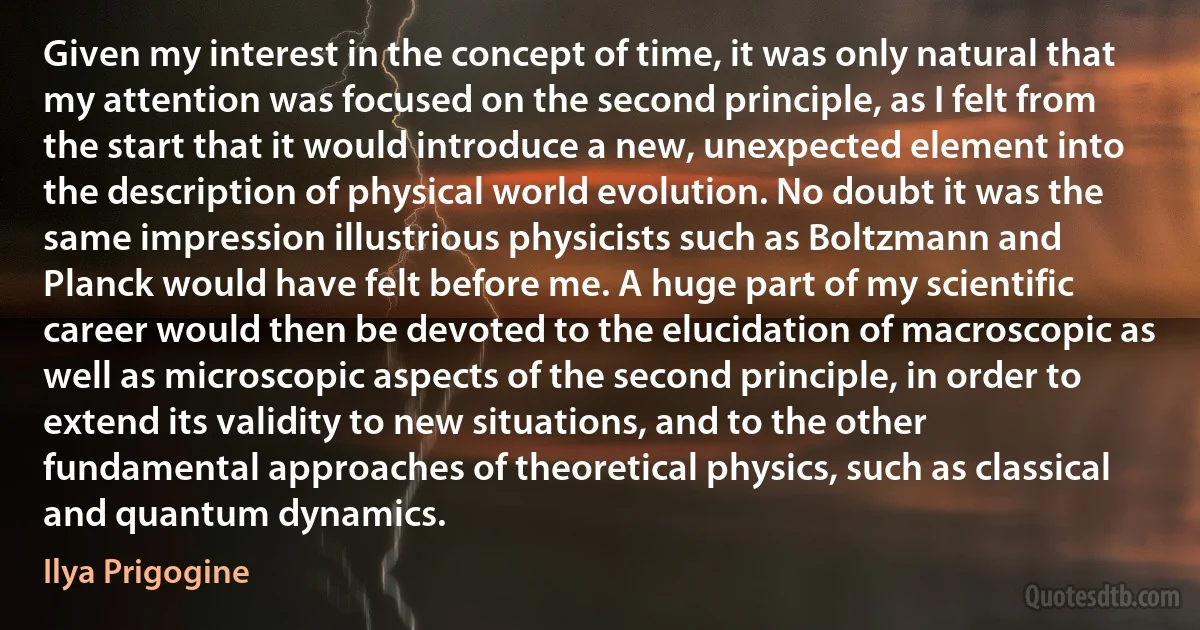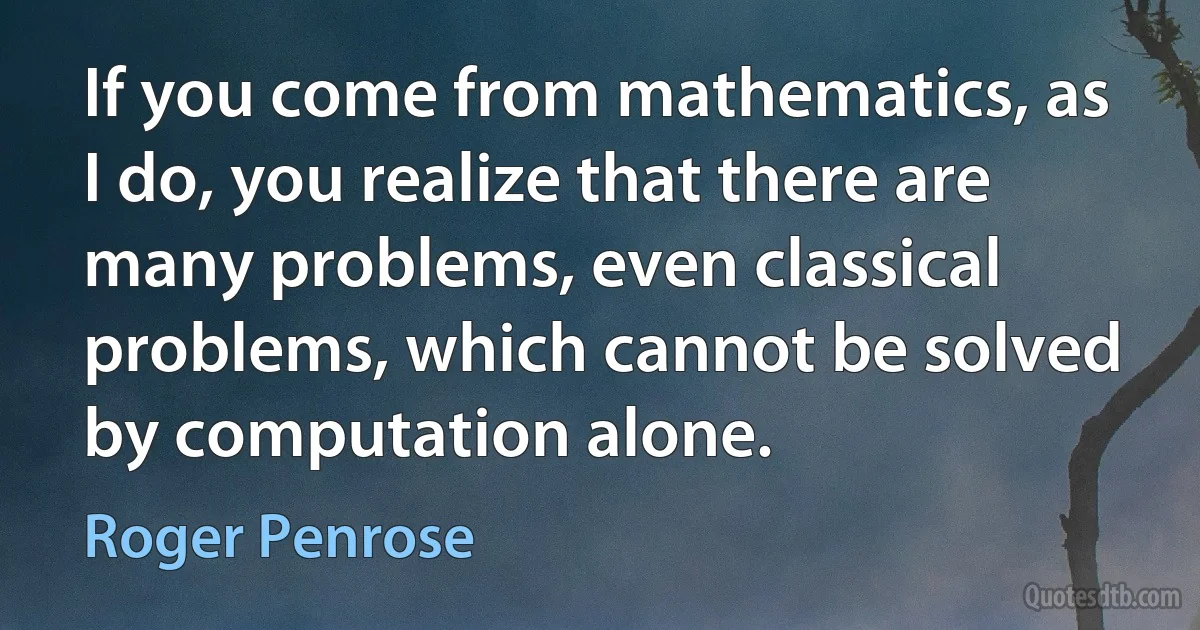Classical Quotes - page 9
First, most producers are employees of firms, not owners. Viewed from the vantage point of classical [economic] theory, they have no reason to maximize the profits of firms, except to the extent that they can be controlled by owners. Moreover, profit-making firms, nonprofit organizations, and bureaucratic organizations all have exactly the same problem of inducing their employees to work toward organizational goals. There is no reason, a priori, why it should be easier (or harder) to produce this motivation in organizations aimed at maximizing profits than in organizations with different goals. If it is true in an organizational economy that organizations motivated by profits will be more efficient than other organizations, additional postulates will have to be introduced to account for it.

Herbert Simon
I think of the classical world as a cancer patient or an AIDS patient. You know you have a limited life span. The question you now might want to ask is what would be the most important things to do now with your remaining years. I would like to think that that type of prioritizing could happen with museums, symphony orchestras, opera companies. Things really are urgent right now, and what we're doing somehow has to matter, has to make a contribution.

Peter Sellars
Unfortunately, the optimistic view that "classical civilization" handed down certain fundamental works that managed to include the knowledge contained in the lost writings has proved groundless. In fact, in the face of a general regression in the level of civilization, it's never the best works that will be saved through an automatic process of natural selection.

Lucio Russo
Although German writers may sometimes have mispraised or overpraised their greatest mediaeval poet, it is certain that we find in Wolfram von Eschenbach qualities, which, in the thousand years between the Fall and the Renaissance of classical literature, can be found to anything like the same extent in only two known writers, the Italian Dante and the Englishman Langland; while if he is immensely Dante's inferior in poetical quality, he has at least one gift, humour, which Dante had not, and is far Langland's superior in variety and in romantic charm.

Wolfram von Eschenbach
Jazz, often called America's classical music, so influenced our culture that Americans named a decade after it. Like the country of its birth, jazz blends many traditions, such as African-American folk, rhythm and blues, French Creole classical form, and gospel. Through the creation and performance of music like jazz, black Americans were better able to exchange ideas freely across racial and cultural barriers. Before our Nation made significant strides in truly promoting equal justice and opportunity for all, black and white musicians in the genres of jazz, blues, and country played together in jam sessions, recording studios, and small bands. In many ways, their art preceded social change, allowing black and white musicians to meet as equals and to be judged on their musical ability, rather than the color of their skin. Their music also provided an outlet for African Americans to speak passionately and brilliantly to the rest of the Nation and the world.

George W. Bush
I'm not crossing over from anything. I think of it as pop music with different influences. "When I walk in the music store, [my] album is under classical/pop/easy listening. It's hard to say what genre it is. It's genreless. I try not to define what it is. I let the audience define it. Because for me, it's just me.

Josh Groban
To understand the economy then is to comprehend how it is driven by the animal spirits. Just as Adam Smith's invisible hand is the keynote of classical economics, Keynes' animal spirits are the keynote to a different view of the economy - a view that explains the underlying instabilities of capitalism.

George Akerlof
But when the artist abandons visible appearance, as in Mondrian's black grids on white grounds filled with balancing rectangles of colour, many people feel left behind. And yet the rhythms of Mondrian are those of nature. The harmonies are those which guided proportion in classical buildings and Renaissance churches. Rothko's glowing maroon Seagram Murals at the Tate may, like Turner's late canvases, appear to be "of nothing" but in their brooding depth Rothko suggests another world. As one four year old child said of the Rothko room at the Tate "it makes me think of God."

Nicholas Serota
(about concerts)"I love the adrenaline rush you get from having a live audience in front of you. There's nothing like performing live. I like to categorize classical music as one of those really beautiful, glamorous gems from the old era. The men are in tails onstage, the women are in beautiful dresses and the soloist comes out in a gorgeous evening gown. I really, really love that old-school glamour. For me, concert days are always exciting. It doesn't matter if I give 100 concerts or 150 concerts that season. Every concert is magical. Every concert has a sparkle to it. The challenge is to keep myself fresh and to give a spontaneous performance every single night while maturing and growing as a musician every day. The whole art form of being onstage is so mysterious and magical, it fascinates me. "

Sarah Chang
Well, I want to start out that I was lucky in the ‘60s to also be taking a class in Classical Ethology by a professor named Tom Evans, where I learned that operant conditioning does not explain all animal behavior. He explained how fixed action patterns and hardwired instinctual behavior works. And I remember going on a visit to Dr. Skinner and I felt like I was visiting, you know, the grand temple of psychology. And I went up to his office and, you know, he seemed, I'm like, "oh, you mean he's actually an ordinary person?" And we got to talking and of course back then I wore a dress you know ‘cause, you know, ladies had to be, like, dressed up, and I had a very conservative dress on, and B. F. Skinner touched my legs.

Temple Grandin
You imply our education is of no use to you in after life. But no education is. We are not an employment agency; all we can do is to give you a grounding in the art of mixing with your fellow men, to tell you what to expect from life and give you an outward manner and inward poise, an old prescription from the eighteenth century which we call a classical education, an education which confers the infrequent virtues of good sense and good taste and the benefit of dual nationality, English and Mediterranean, and which, taking into account the difficulties of modern life, we find the philosophy best able to overcome them.

Cyril Connolly



